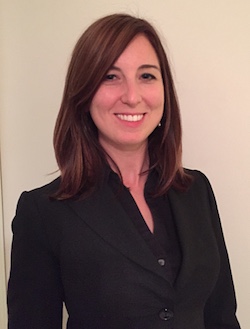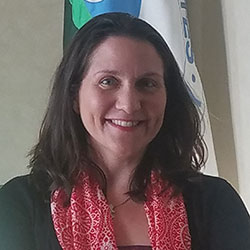Leveraging Resources for Brownfields Revitalization: Meet the Funders - Infrastructure
Sponsored by: U.S. EPA Office of Brownfields and Land Revitalization
Brownfield grants from the U.S. Environmental Protection Agency (EPA) are one of many sources of funds that can support redevelopment of contaminated sites. This webinar will highlight a number of infrastructure redevelopment resources available from the U.S. Department of Transportation, the U.S. Army Corps of Engineers, and EPA's Office of Water to leverage your brownfield dollars. The webinar will also feature a presentation from a community that has successfully used grants, loans and other support from these agencies for its revitalization efforts. It is the third in OBLR's webinar series on what communities need to know to successfully leverage resources for brownfields revitalization.
Agenda:
- Welcome: Andrew Seth, President, Sustainable Strategies DC
- Introductory Remarks: Aimee Storm, Land Revitalization Coordinator, U.S. EPA
- Department of Transportation Resources: Danielle Rinsleyr, U.S. Department of Transportation
- EPA Resources: Sonia Brubaker, Program Manager, Water Infrastructure and Resiliency Finance Center, U.S. EPA
- Army Corps of Engineers Resources: Matt Ward, CEO, Sustainable Strategies DC
- Case Study - Toledo, Ohio: Marc Gerdeman, David Dysard, and Scott Sibley; City of Toledo
Accessibility, Recording, and Content Disclaimer
Rehabilitation Act Notice for Reasonable Accommodation
It is EPA's policy to make reasonable accommodation to persons with disabilities wishing to participate in the agency's programs and activities, pursuant to the Rehabilitation Act of 1973, 29 U.S.C. 791. Any request for accommodation should be made to at or , preferably one week or more in advance of the webinar, so that EPA will have sufficient time to process the request. EPA would welcome specific recommendations from requestors specifying the nature or type of accommodation needed. Please note that CLU-IN provides both alternate phone call-in options and closed captioning for all webinars, and requests for these specific accommodations are not necessary.
Webinar Recording
By participating in this CLU-IN webinar, you automatically agree to authorize recording of audio and visual content presented during this live event and consent to subsequent use of this recording in the public domain by the U.S. Environmental Protection Agency. This recording may include questions, comments and poll responses provided by you during the live event in addition to your name, voice, image or likeness. This recording will be made available after the conclusion of the live event as part of the CLU-IN webinar archives, and will remain available indefinitely. If you do not wish to consent to the recording, please do not join the live event, and contact Jean Balent at 202-566-0832 or balent.jean@epa.gov to discuss your concerns.
Content Disclaimer
This webinar is intended solely to provide information to the public. The views and opinions expressed as part of this webinar do not necessarily state or reflect those of the U.S. Environmental Protection Agency. It is not intended, nor can it be relied upon, to create any rights enforceable by any party in litigation with the United States, or to endorse the use of products or services provided by specific vendors. With respect to this webinar, neither the United States Government nor any of their employees, makes any warranty, express or implied, including the warranties of merchantability and fitness for a particular purpose, or assumes any legal liability or responsibility for the accuracy, completeness, or usefulness of any information, apparatus, product, or process disclosed, or represents that its use would not infringe privately owned rights.
Presenters:
Matt Ward, Sustainable Strategies DC (matt.ward@strategiesdc.com)
 Sonia Brubaker, Program Manager, Water Infrastructure and Resiliency Finance Center, U.S. Environmental Protection Agency (brubaker.sonia@epa.gov)
Sonia Brubaker, Program Manager, Water Infrastructure and Resiliency Finance Center, U.S. Environmental Protection Agency (brubaker.sonia@epa.gov)
Sonia Brubaker serves as program manager for EPA's Water Infrastructure and Resiliency Finance Center. She works on identifying leading-edge water infrastructure funding and financing for Communities in Need. The Water Finance Center helps communities to make informed decisions for drinking water, wastewater, and stormwater infrastructure. Her experience with asset management, public communication, and other sustainability initiatives further the Center's initiatives. Sonia received a Master of Environmental Management with an emphasis in Leadership from Duke University and a Bachelor of Science in Environmental Policy and Planning from Virginia Tech.
Marc Gerdeman, Brownfield Redevelopment Officer, City of Toledo, Ohio (marc.gerdeman@toledo.oh.gov)
Danielle Rinsler, U.S. Department of Transportation (danielle.j.rinsler@dot.gov)
Patricia Overmeyer, Land Revitalization Coordinator, Office of Brownfields and Land Revitalization, U.S. Environmental Protection Agency (Overmeyer.Patricia@epa.gov)
David Dysard, Engineering Services Administrator, City of Toledo, Ohio (david.dysard@toledo.oh.gov)
Scott Sibley, Engineering Services Administrator, City of Toledo, Ohio (scott.sibley@toledo.oh.gov)
Moderators:
Andrew Seth, Sustainable Strategies DC (andrew.seth@strategiesdc.com)
 Jean Balent, U.S. EPA Technology Innovation and Field Services Division (balent.jean@epa.gov)
Jean Balent, U.S. EPA Technology Innovation and Field Services Division (balent.jean@epa.gov)
Ms Balent is on the staff of the EPA's Technology Innovation and Field
Services Division
where she has worked to collect and disseminate hazardous waste
remediation and
characterization information since 2003. Ms Balent manages the Clean Up
Information
Network website and actively supports online
communication and
collaboration resources available to EPA. She formerly worked with the
US Army Corps
of Engineers Environmental Engineering Division in the Buffalo District.
Ms Balent was
also a member of the SUNY-Buffalo Groundwater Research Group where she
constructed and tested large scale models of groundwater flow. Ms Balent
has also
conducted research relating to the Great Lakes, environmental
remediation, and
brownfields re-development. She holds a Bachelor's degree in
environmental
engineering from SUNY-Buffalo and a Master's degree in Information
Technology from
AIU.
Webinar Slides and References:
- Slide Presentation:
Webinar Slides and References:
- Slide Presentation:
Additional Resources:
- Section 108 Loan Guarantee Program, Department of Housing and Urban Development
- Rural Business-Cooperative Service, USDA Rural Development
- Setting the Stage for Leveraging Resources for Brownfields Revitalization: This guide was developed by EPA to assist communities in overcoming the challenges of making sound investment decisions to attract additional resources for brownfields redevelopment projects and community revitalization. Sound initial investments of local funds can open opportunities for additional public funds and attract the interest and support of outside investors and lead to additional funding.
- 2015 Brownfields Federal Programs Guide: This document illustrates how the Brownfields Program does more than simply address environmental contamination—it recognizes that a community's quality of life goes hand-in-hand with economic development and sustainability, and encourages communities to develop and implement their own vision for community revitalization.
- EPA Brownfields Program
- EPA Land Revitalization Program
- Superfund Community Involvement Tools and Resources: This page provides links to the Superfund Community Involvement Toolkit and Handbook, as well as additional resources and information on how to use them.
- Types of Brownfields Grant Funding: EPA's Brownfields program provides direct funding for Brownfields assessment, cleanup, revolving loans, and environmental job training. This page describes each of the grant programs, and provides information on availability, requirements, and how to apply.
- Land Revitalization Program Tools for Communities: This fact sheet highlights some of the tools that have resulted from the regional community-based projects undertaken with assistance from the Land Revitalization Program. These useful tools can be adapted for use in other communities.
- Technical Assistance to Brownfields Communities: EPA is committed to providing technical assistance and resources to help small, rural, environmental justice, and other community stakeholders with the necessary technical assistance to aid in the assessment and cleanup of Brownfields properties. This page describes programs that currently provide this type of assistance and conduct research projects designed to help communities address brownfields.
- ATSDR Brownfield/Land Use Health Initiative: Community health considerations are important parts of ATSDR's land revitalization activities. As such, through its Brownfields/Land Reuse Health Initiative, ATSDR works to promote a well-rounded approach to redevelopment, include health as an important part of redevelopment, grow community resources to promote health, measure changes in community health, encourage early community involvement in decision making, restore and revitalize communities in a way that is fair to all community groups, promote relationships among, agencies, partners, and communities, and improve ways to talk about health and environmental risks.
Thank you for participating in our webinar. We would like to receive any feedback you might have that would make this service more valuable.
Help & FAQs
Adobe Connect Resources
This seminar will be delivered through Adobe® Connect™ with streaming audio delivered through your computer speakers or headphones. We strongly encourage you to test your computer or mobile app prior to attending this seminar using the links below. Technical support on the day of the seminar will be very limited and subject to significant delays.
Rehabilitation Act Notice for Reasonable Accommodation
It is EPA's policy to make reasonable accommodation to persons with disabilities wishing to participate in the agency's programs and activities, pursuant to the Rehabilitation Act of 1973, 29 U.S.C. 791. Any request for accommodation should be made to at or , preferably one week or more in advance of the seminar, so that EPA will have sufficient time to process the request. EPA would welcome specific recommendations from requestors specifying the nature or type of accommodation needed, such as closed captioning.
with any additional questions
If you have a suggested topic or idea for a future CLU-IN internet seminar, please contact:
Technology Integration and Information Branch
PH: 202-566-0832 | Email: balent.jean@epa.gov
Technology Integration and Information Branch
PH: 202-566-0875 | Email: adam.michael@epa.gov





